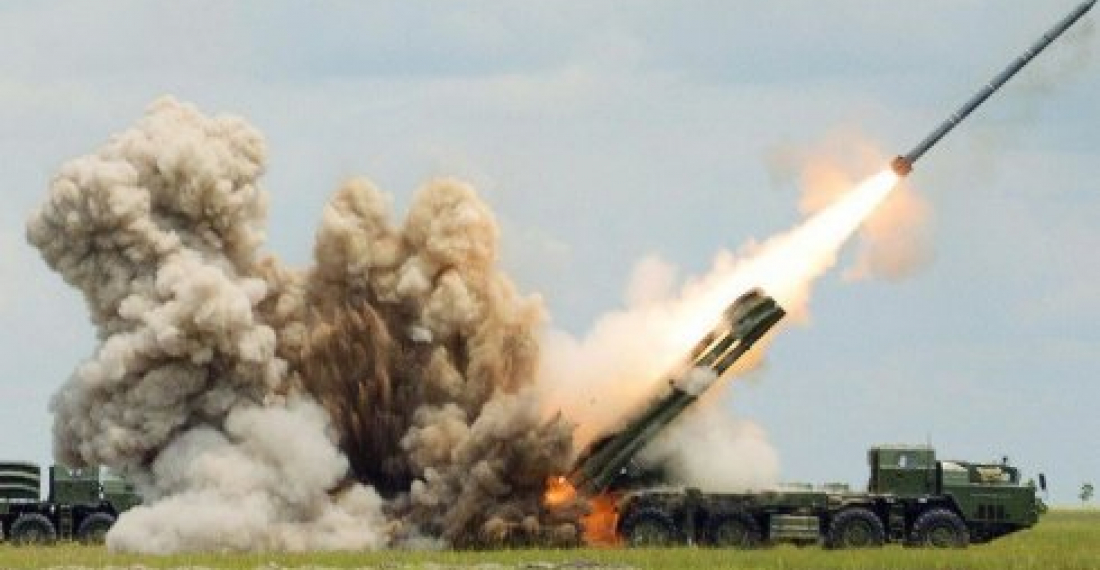Both Armenia and Azerbaijan say that heavy fighting is taking place Saturday morning in the Karabakh conflict zone. The fighting appears to be more intensive in the northern and southern sectors of the line of contact in the Karabakh conflict zone. Neither side is giving details.
On Friday, Azerbaijani presidential aide Hikmet Haciev said Armenia shells Azerbaijani settlements with Smerch multiple launch rocket systems and Tochka-U tactical missiles. Armenia has denied the claims. "The claims of Azerbaijani officials, alleging that Armenia fires Tochka-U systems at Azerbaijani territory, are lies and are false. Despite the fact that Azerbaijan has been attacking settlements near Vardenis with drones and artillery for several days already, not a single missile has been fired from Armenia at Azerbaijan yet," the Armenian Defence Ministry said.
As the fighting rages on diplomatic activity, most of it behind the scenes, has also intensified in an effort to halt the fighting and bring back some form of peace process. Central to this activity are France, Russia and the United States, the three co-chairs of the OSCE Minsk process, as well as Turkey.
On Friday (2 October) president Macron of France spoke with president Ilham Aliyev of Azerbaijan. The phone call came amid an outcry in Azerbaijan after Macron appeared to voice support for Armenia earlier in the week. Several groups close to the government in Azerbaijan have called for France to cease being a co-chair of the Minsk Process that is empowered to mediate a solution to the conflict.
Speaking in an interview on the Al Jazeera news channel, president Ilham Aliyev made a thinly veiled reference to France, saying:
"During my 17 years in the process, all three countries have been equally involved. There is a fairly high level of coordination in the process. Of course, Russia has a special position, because it is a neighbor of Azerbaijan in the region, it has no state border with Armenia. Nevertheless, Russia is a country with good relations and historical relations with Azerbaijan and Armenia. Therefore, of course, their role and ability to mediate is very high compared to those who are far from the region for objective reasons, and perhaps those who do not fully know what has happened here in the last decade. Aliyev noted that if all of them maintain neutrality, the three countries should continue to work together: "This is important. We are concerned that in recent days we have seen some statements that have had the opposite effect, showing a certain change in the position of neutrality. Each country may have its own position, which is normal. However, if you are a mediator in such a sensitive issue, you should take this position. If you want to speak from your national position, then you must leave the co-chairmanship of the Minsk Group, say what you want, blame whoever you want, give unproven reports about what happened, and of course no one will protest. But if you are a mediator, you have to be neutral, you have to be a mediator. Otherwise, mediation will not be accepted by us. "
related content: The presidents of France, Russia and the United States issue joint statement on Karabakh
Turkey has been one of the countries most vocal during the conflict, with president Recip Tayip Erdogan making daily references to it since it erupted on Sunday (27 September). Turkey continues to pledge full support for Azerbaijan.Speaking in the city of Konya on Friday (2 October) Erdogan reiterated that Turkey will stand by Baku with all its capacity, and that Azerbaijan's struggle would continue until Nagorno-Karabakh is liberated.
Meanwhile, Turkish Foreign Minister Mevlut Cavusoglu discussed the ongoing Armenia-Azerbaijan conflict with his Russian counterpart, Sergei Lavrov, on Thursday.
Turkish media reports that Cavusoglu told Lavrov that a ceasefire would be meaningless without a permanent solution, namely, Armenia's complete withdrawal from all lands that are internationally recognized as Azerbaijani territory, a Turkish diplomatic source said. According to the foreign minister, even if fighting stops today, clashes would simply resume later, the reports said.
The Russian Foreign Ministry in its read-out of the conversation said that Turkey and Russia were ready to stabilise the situation and both ministers confirmed a "readiness for close coordination of the actions of Russia and Turkey to stabilize the situation with the aim of returning the settlement of the Nagorno-Karabakh conflict to the channel of peace talks."
US sources say a senior US diplomat is on his way to Ankara to discuss the conflict. Acting US Assistant Secretary of State for European and Eurasian Affairs, Ambassador Philip Reeker will visit Turkey to discuss the situation in the Caucasus and the Eastern Mediterranean, the State Department said.
The foreign ministers of Turkey and Azerbaijan also had a telephone conversation on Friday. No details were given.
source: commonspace.eu with agencies






